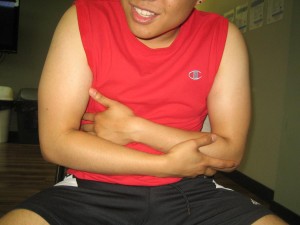Fact Checked
Dyspepsia is a prevalent GI tract condition with various symptoms. These indications include the following:
- Bloating
- Abdominal pain or discomfort
- Nausea
- Sensation of uncomfortable fullness after a meal
- Appetite loss
- Heartburn
- Burping
- Burping up fluid or food
https://www.youtube.com/watch?v=ShBwpdr2oD8
In most individuals, they experience some symptoms of dyspepsia at some point in their lives.
What are the causes?

- Regurgitation or reflux due to GERD or hiatal hernia
- Condition that affects the travel of food via the intestines such as irritable bowel syndrome
- Peptic or duodenal ulcer
- Gallbladder pain or inflammation
- Inability or difficulty digesting milk or dairy products
- Depression or anxiety
- Side effects of alcohol, caffeine or medications
- Stomach cancer
- Swallowing air
Management
There are lifestyle changes that can help alleviate the symptoms of dyspepsia.
- Changes in the eating habits such as eating several small-sized meals throughout the day.
- After eating, wait for 2-3 hours before lying down. Late-night snacks are not advisable.
- Mint, chocolate and alcohol can worsen dyspepsia since they relax the valve between the esophagus and stomach.
- Spicy foods, acidic foods and coffee can worsen dyspepsia in some individuals. If a food aggravates the symptoms, it is best to stop eating the food to check if the symptoms settle.
- Avoid smoking or chewing tobacco
- If dyspepsia occurs at night time, elevate the head of the bed 6-8 inches by placing a foam wedge beneath the head of the mattress or putting the frame on blocks.
- Avoid wearing constricted clothing around the middle.
- Try to cut down weight if needed.
The treatment usually depends on the exact cause. If there is no specific cause, the treatment is aimed on alleviating the symptoms with medications.
